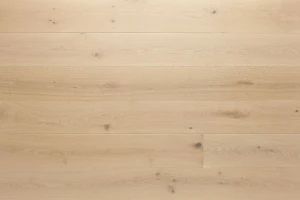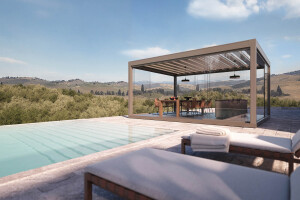The three-bedroom, two storey house sits on a double-fronted site which, although relatively large by Fitzroy standards, proved challenging because of its north-south orientation, coupled with the practicalities of building boundary-to-boundary. Proportion and detailing were critical to achieving an outcome that was in keeping with the rhythm of the streetscape.


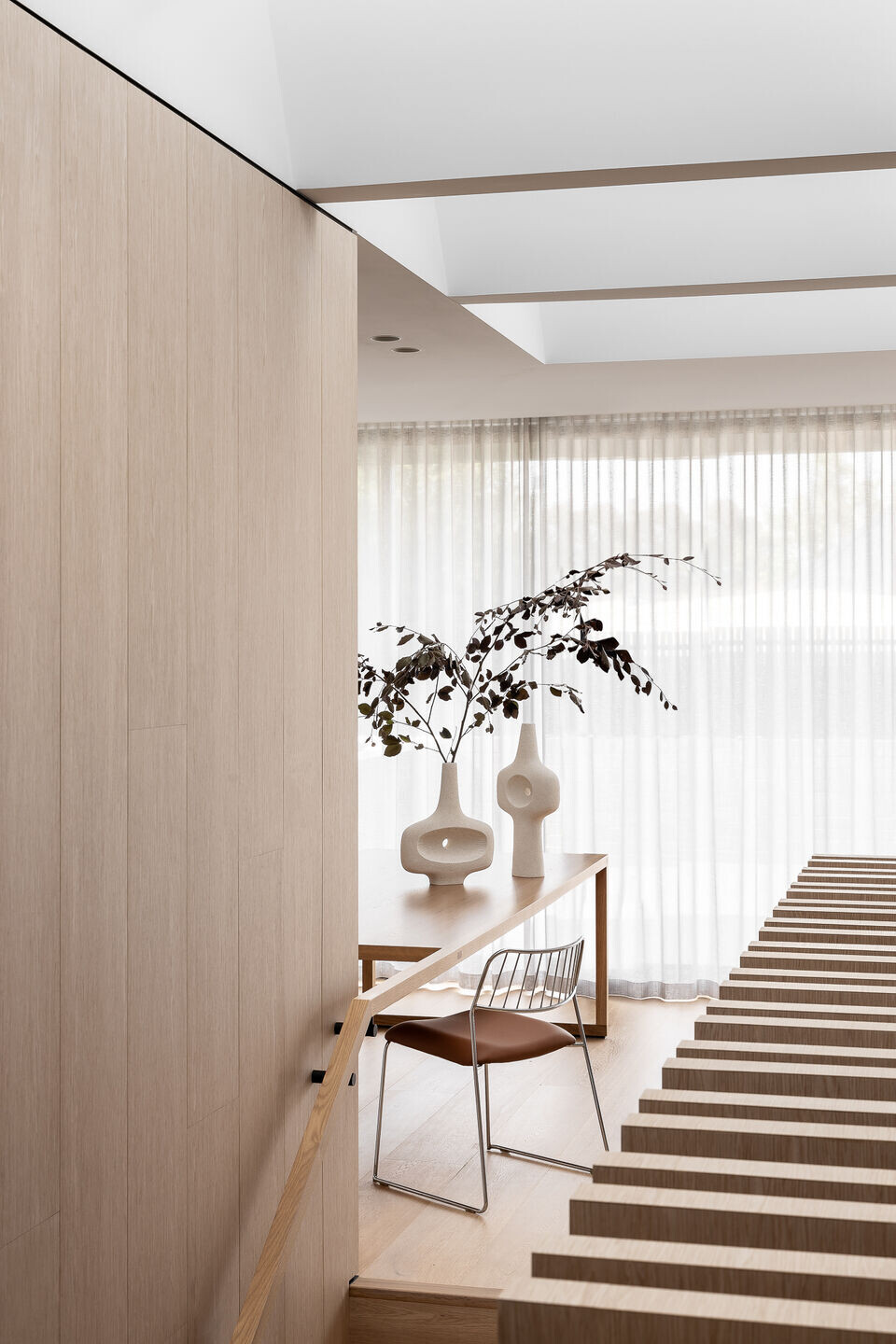
Particular attention was paid to the window proportions and the external materials palette, notably a dark-coloured pressed brick and black powder-coated steel fencing and screening that together accentuate the verticality of the design.
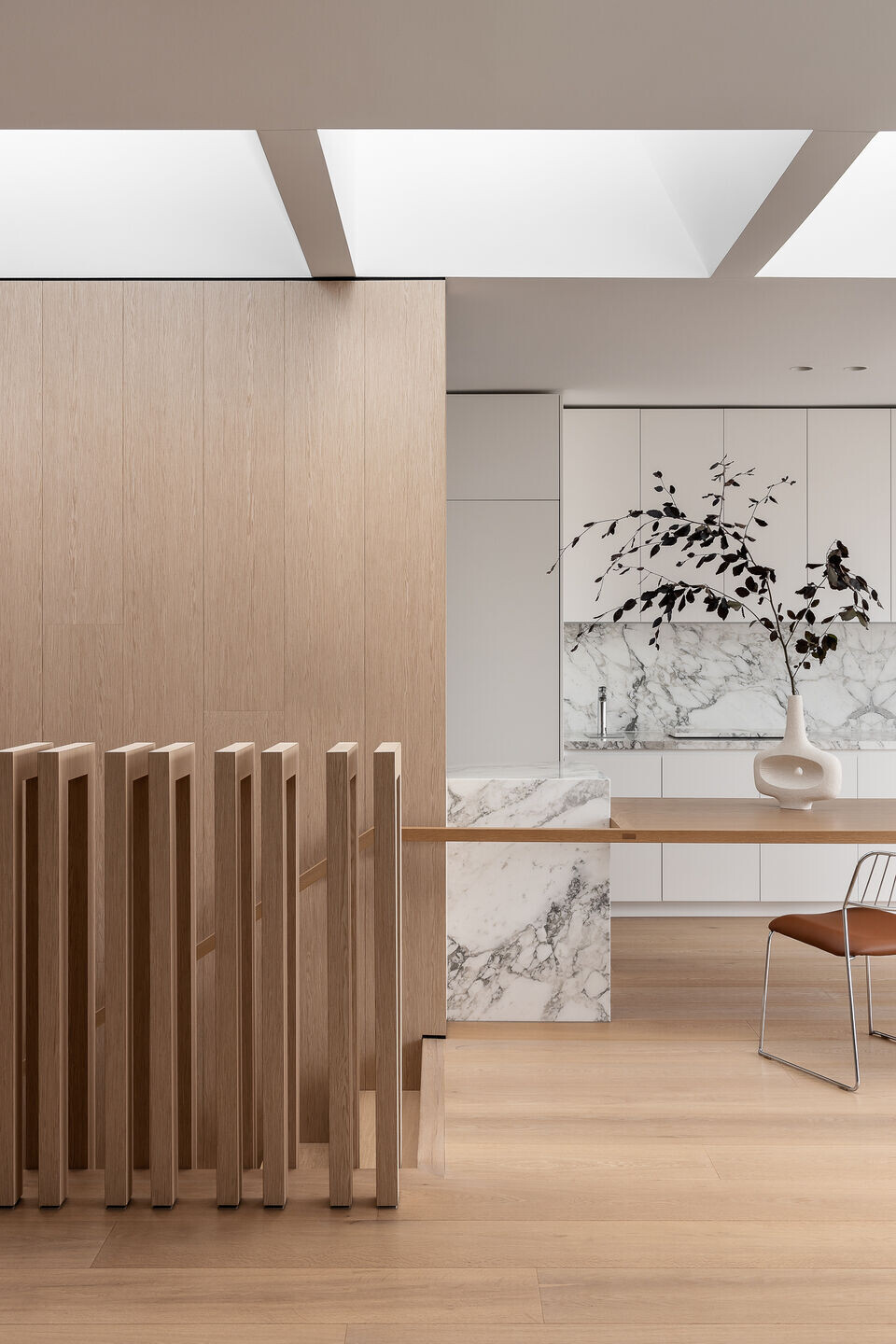

The exterior is in sharp contrast to the light-filled interior. Entering through the bespoke timber front door you’re greeted by vertical timber panelling and screening that lead on to a ‘floating’ timber staircase ascending to the kitchen, living and master bedroom. (These rooms are positioned at the rear of the upper level to capitalise on the extensive views to the south across neighbouring rooftops to the city.)


The balustrade and stair treads cantilever off a timber panelled wall that extends over both levels, while the custom timber handrail continues beyond the top of the stairway to meld seamlessly into the kitchen joinery.
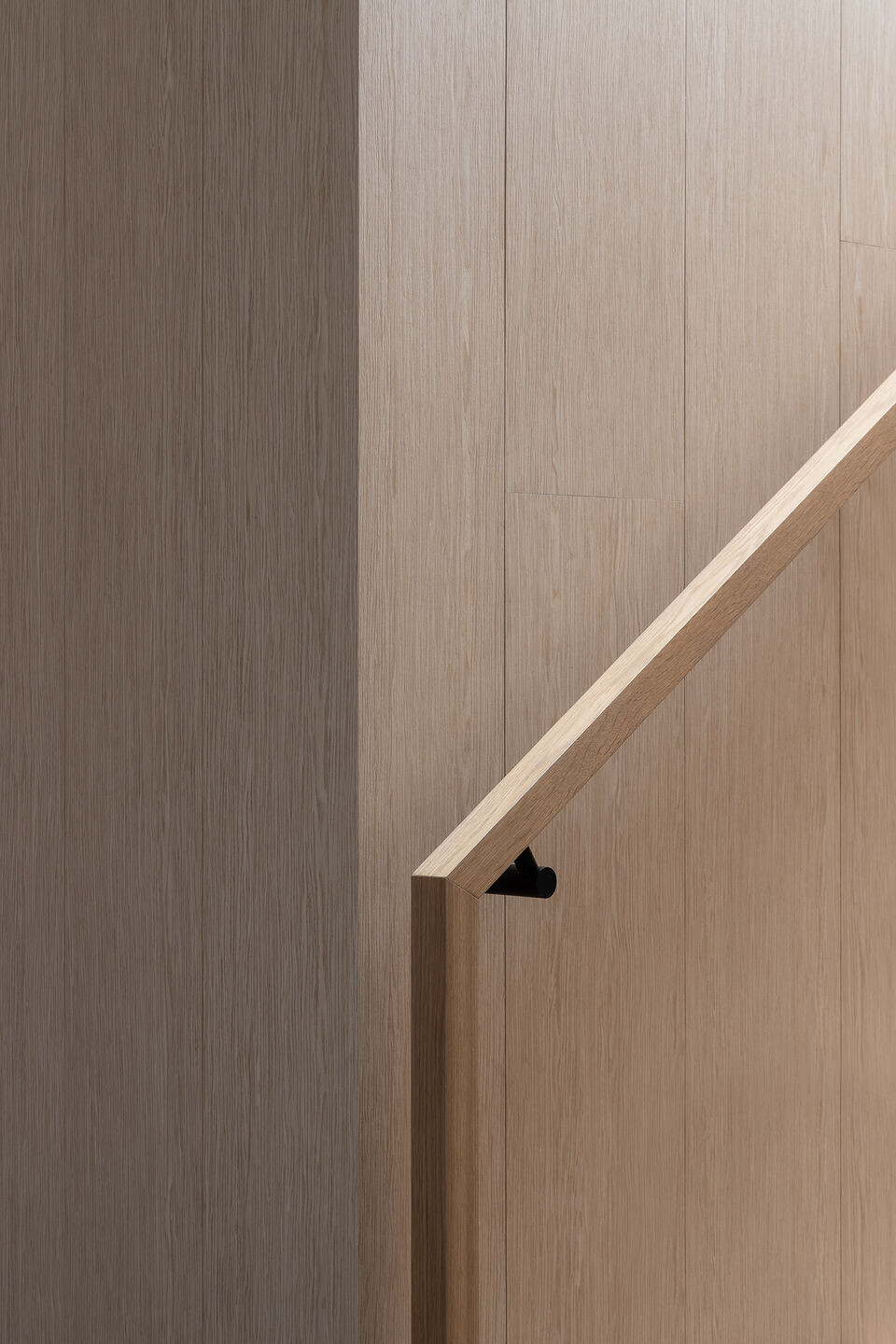
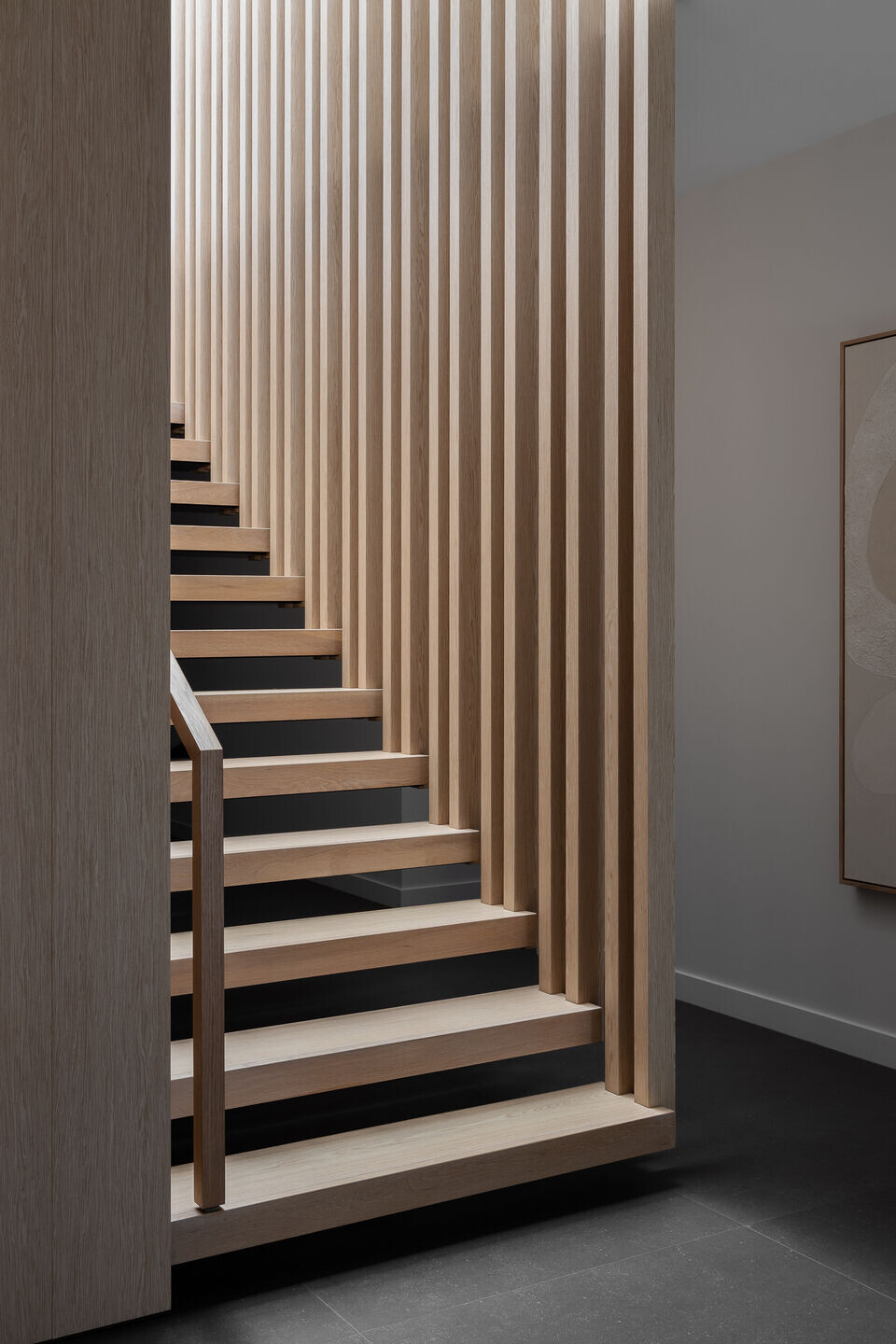
Directly above the stairwell is a series of skylights – a practical design feature incorporated into the north-facing, sawtooth roof form to compensate for the lack of windows on the east and west boundary walls.
These skylights bathe the upper and lower levels in natural light, at the same time highlighting the sharp interior detailing.
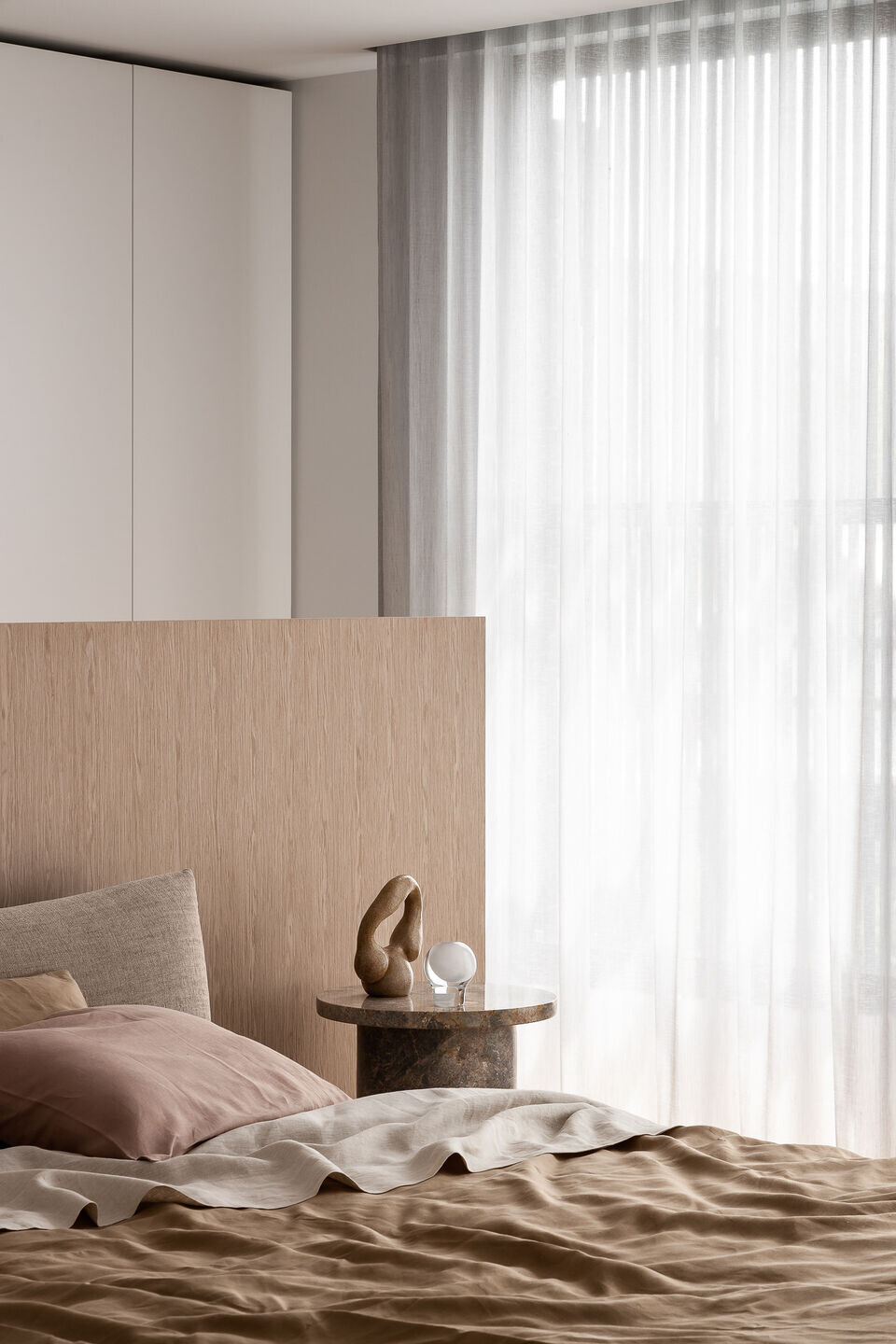
As much as our clients wanted the house to sit comfortably within the heritage streetscape, they wanted these interiors to reflect a minimalist aesthetic – clean, angular lines and hard surfaces. In many ways, Cecil Street is a humble little house. It doesn’t overreach or pretend to be more than it is. The internal layout and volumes create a circulation pattern deliberately attuned to everyday living.

